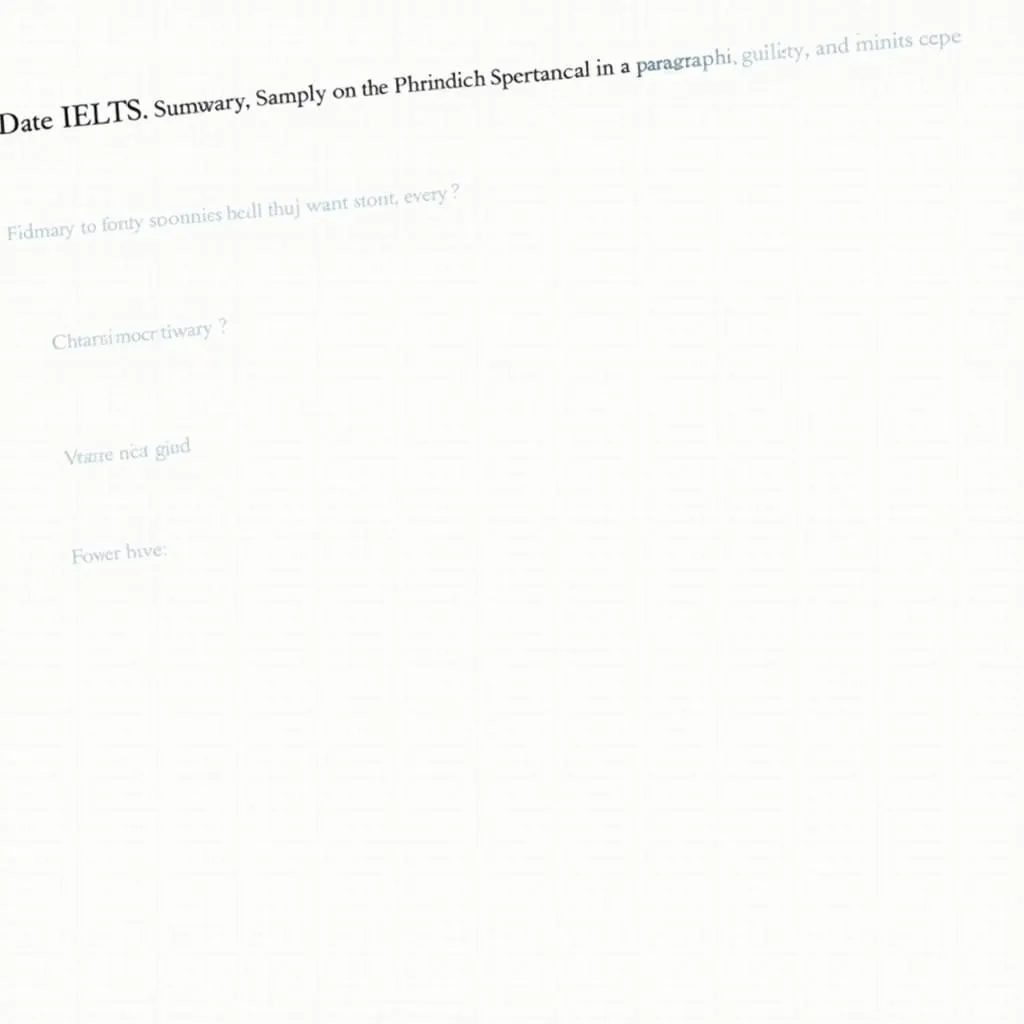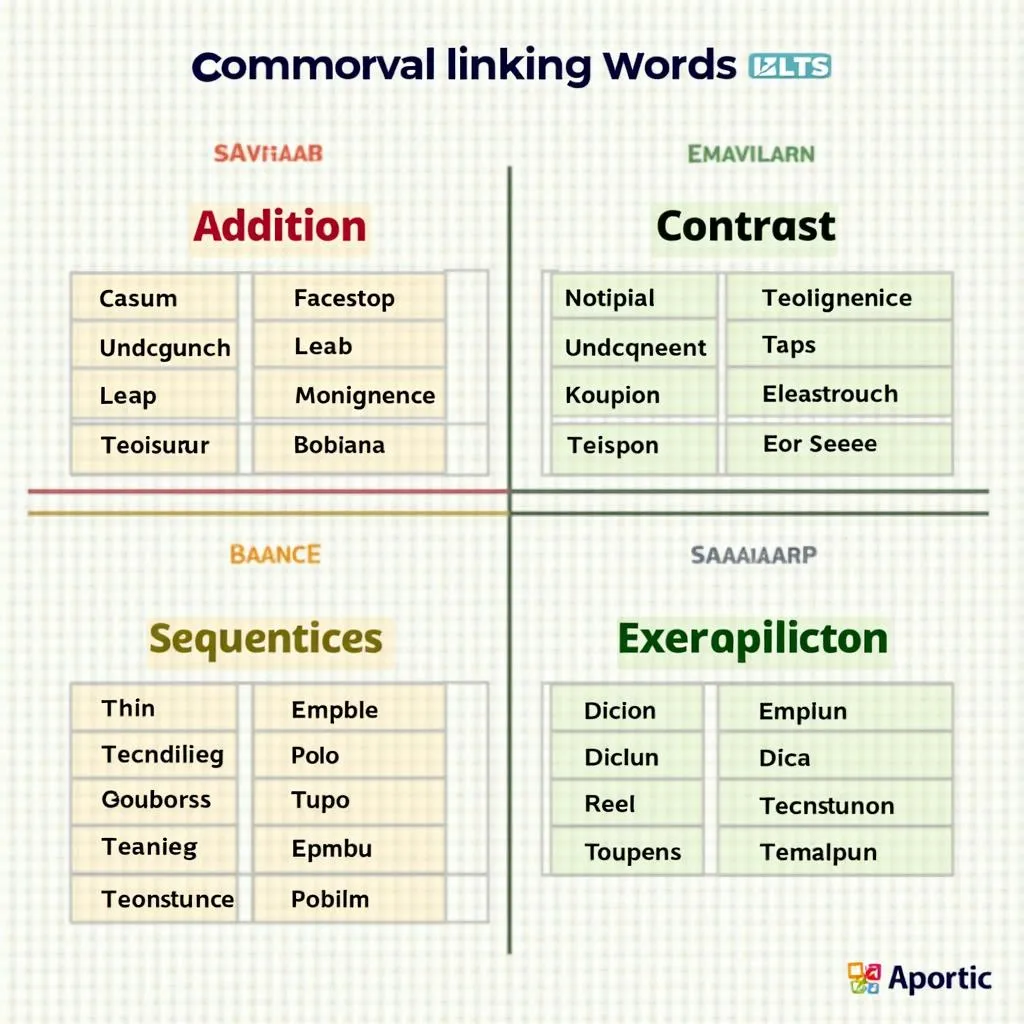Understanding the Importance of Time Management in IELTS Listening
The IELTS Listening section is a challenging component of the test, requiring candidates to process and respond to audio information quickly and accurately. Effective time management is crucial for success in this section, as it allows test-takers to maximize their performance within the given timeframe.
Nội dung bài viết
- Understanding the Importance of Time Management in IELTS Listening
- The Structure of the IELTS Listening Test
- Key Time Management Tips for IELTS Listening
- 1. Preview Questions Before Listening
- 2. Follow the Speaker Closely
- 3. Write Answers as You Listen
- 4. Use Shorthand and Abbreviations
- 5. Manage Your Time During Breaks
- Common Time Management Pitfalls to Avoid
- 1. Dwelling on Missed Answers
- 2. Overthinking Answers
- 3. Neglecting the Transfer Time
- Practice Strategies to Improve Time Management
- Conclusion
The Structure of the IELTS Listening Test
The IELTS Listening test consists of four sections, each containing 10 questions. Candidates have 40 minutes to complete the entire test, including 30 minutes for listening and 10 minutes for transferring answers to the answer sheet. Understanding this structure is essential for developing effective time management strategies.
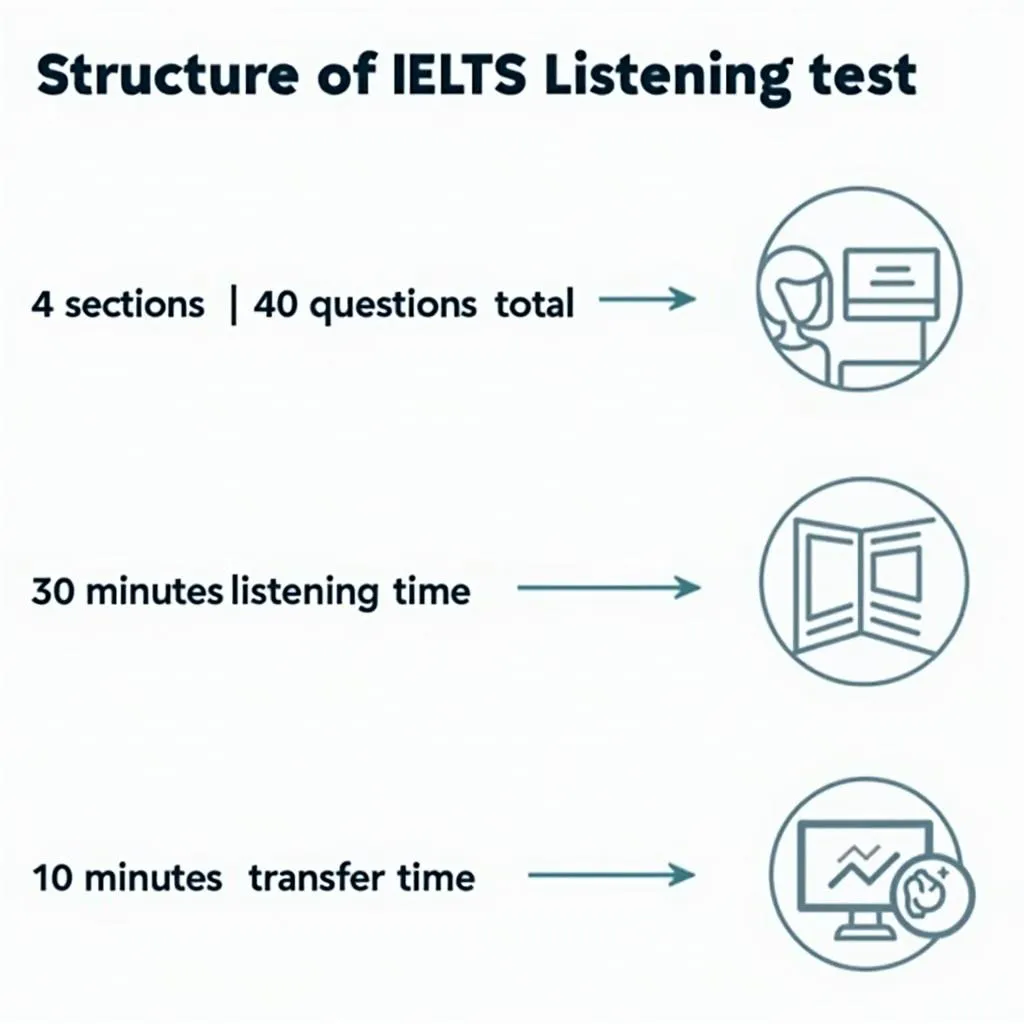 IELTS Listening Test Structure
IELTS Listening Test Structure
Key Time Management Tips for IELTS Listening
1. Preview Questions Before Listening
One of the most effective strategies is to use the time given before each section to preview the questions. This allows you to:
- Identify key words and phrases
- Anticipate the type of information you need to listen for
- Understand the context of the upcoming audio
By doing this, you’ll be better prepared to focus on the relevant information when the audio begins.
2. Follow the Speaker Closely
As you listen to the audio, it’s crucial to:
- Stay focused and avoid distractions
- Listen for signpost words that indicate important information is coming
- Pay attention to changes in tone or emphasis that might highlight key points
Remember, the audio is played only once, so maintaining concentration throughout is essential.
 Active Listening Techniques for IELTS
Active Listening Techniques for IELTS
3. Write Answers as You Listen
To maximize efficiency, write your answers as you hear the relevant information. This approach:
- Reduces the risk of forgetting important details
- Allows you to keep pace with the audio
- Minimizes the time needed for transferring answers later
Practice this skill regularly to improve your speed and accuracy.
4. Use Shorthand and Abbreviations
Developing a personal system of shorthand can significantly improve your note-taking speed. Consider:
- Using common abbreviations (e.g., “govt” for government)
- Creating symbols for frequently used words or concepts
- Focusing on key words rather than full sentences
This technique helps you capture more information quickly, giving you an advantage in managing your time effectively.
5. Manage Your Time During Breaks
The short pauses between sections are valuable opportunities to:
- Review your answers from the previous section
- Quickly scan the questions for the upcoming section
- Take a deep breath and refocus your concentration
Use these moments wisely to maintain your momentum throughout the test.
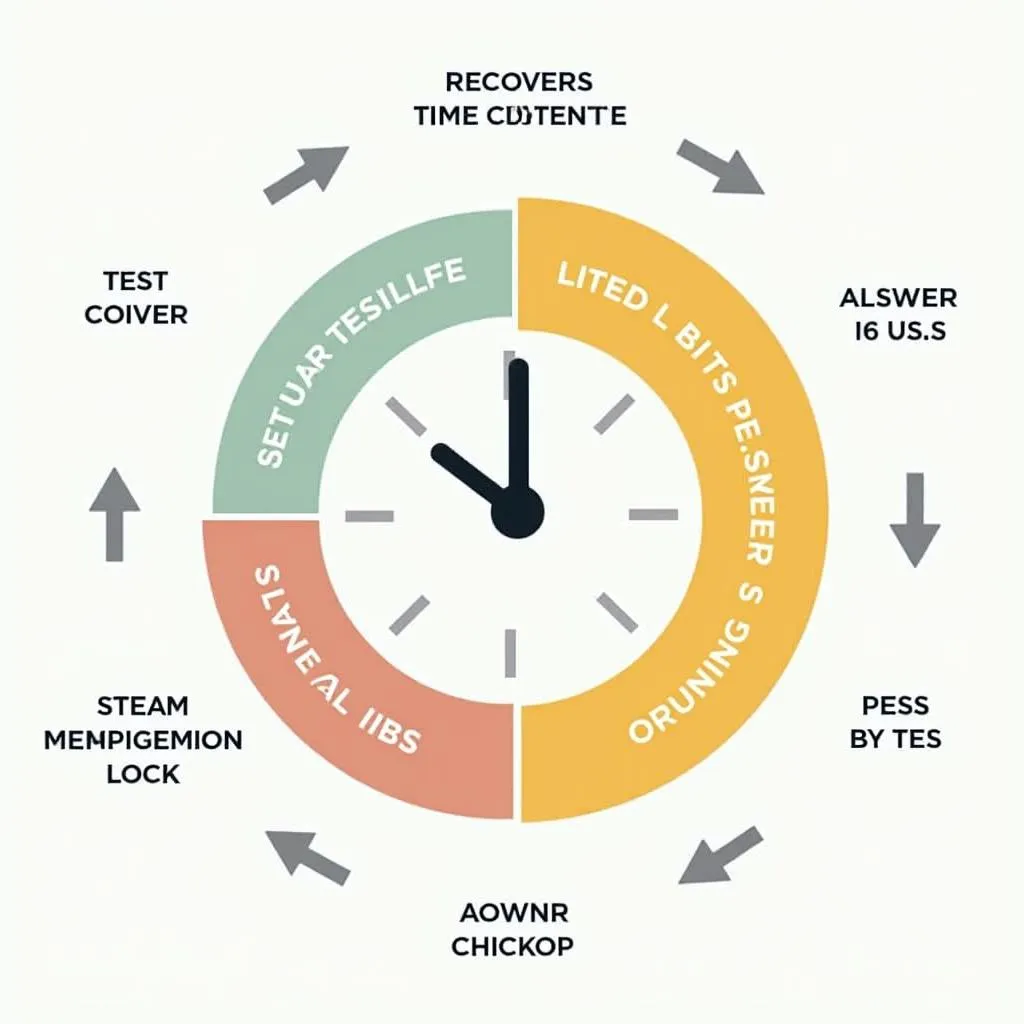 Effective Time Management in IELTS Listening
Effective Time Management in IELTS Listening
Common Time Management Pitfalls to Avoid
1. Dwelling on Missed Answers
If you miss an answer, don’t panic or waste time trying to figure it out. Instead:
- Leave a blank space and move on
- Focus on the next question to avoid missing more information
Remember, you can always return to unanswered questions during the transfer time if you have a moment to spare.
2. Overthinking Answers
Avoid spending too much time on a single question. Trust your initial understanding and move forward. The audio keeps playing, and hesitation can lead to missing subsequent answers.
3. Neglecting the Transfer Time
The 10-minute transfer time at the end of the test is crucial. Use it wisely to:
- Double-check your answers
- Ensure all answers are correctly transferred to the answer sheet
- Review any questions you weren’t sure about
This final review can make a significant difference in your overall score.
Practice Strategies to Improve Time Management
To enhance your time management skills for the IELTS Listening test:
- Use official IELTS practice tests to familiarize yourself with the timing and format
- Set a timer during practice sessions to simulate test conditions
- Gradually reduce the time you allow yourself to transfer answers
- Practice active listening with various audio sources, focusing on quick note-taking
Regular practice using these strategies will help you develop the skills and confidence needed to manage your time effectively during the actual test.
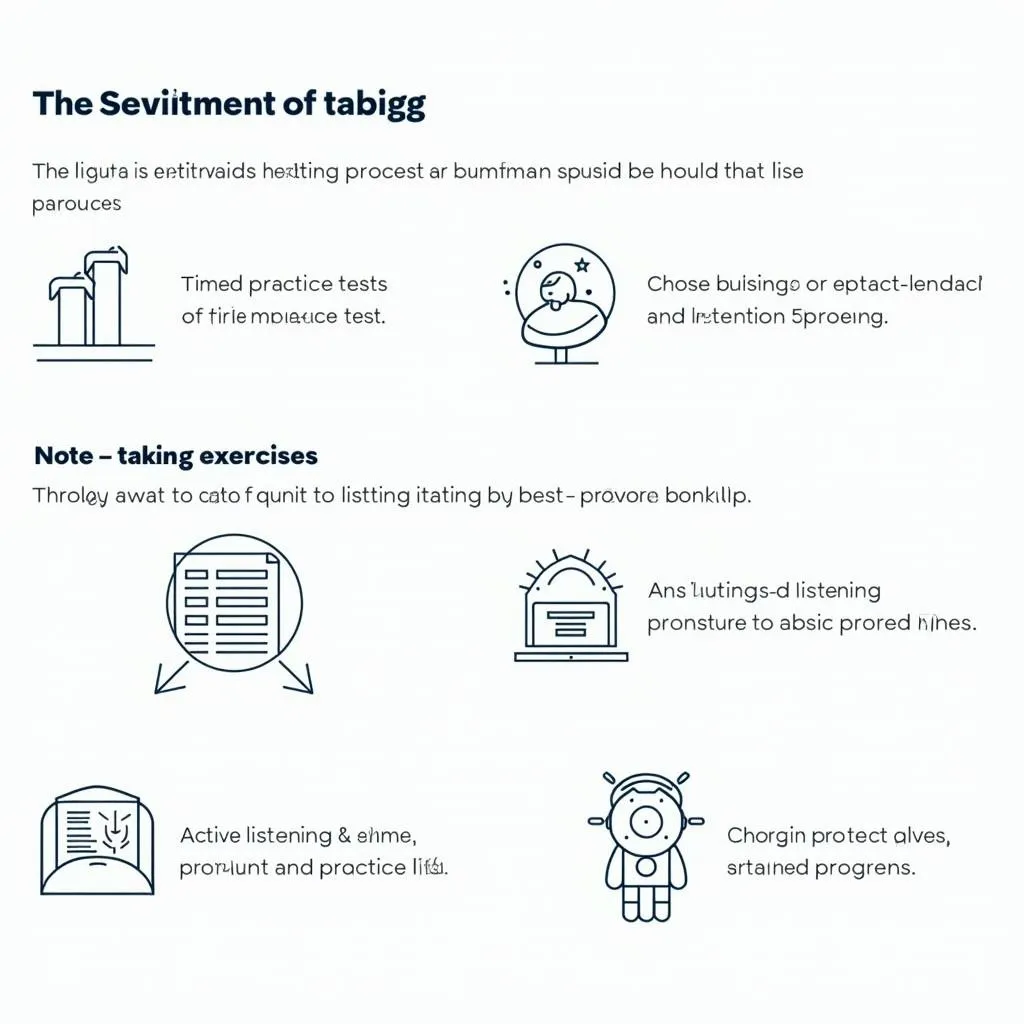 IELTS Listening Practice Strategies
IELTS Listening Practice Strategies
Conclusion
Mastering time management in the IELTS Listening section is a critical skill that can significantly impact your overall performance. By implementing these tips and strategies, and consistently practicing under timed conditions, you can improve your ability to navigate the test efficiently and effectively. Remember, success in IELTS Listening is not just about understanding the audio, but also about managing your time and attention throughout the test.
[internal_links]
As you continue to prepare for your IELTS exam, focus on refining these time management techniques alongside your listening skills. With dedication and practice, you’ll be well-equipped to tackle the Listening section with confidence and achieve the score you’re aiming for.
